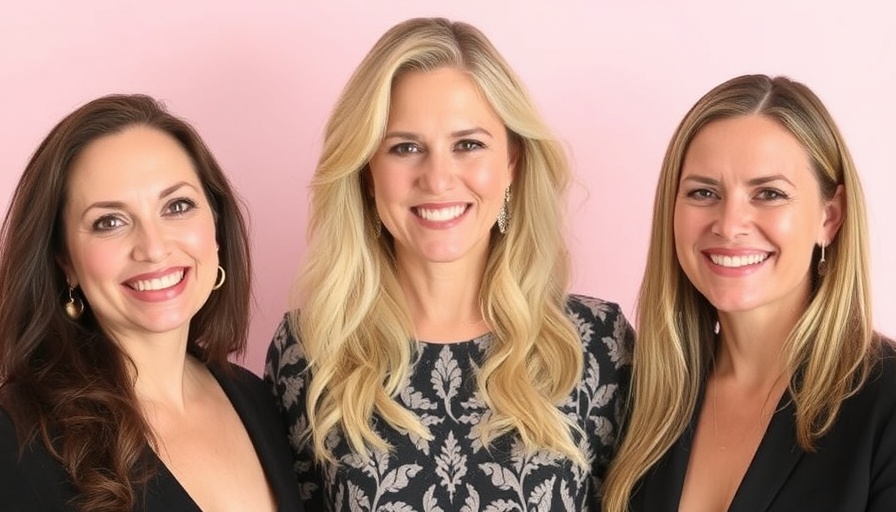
The End of the Founder-Led Era in Beauty?
In the dynamic world of beauty, a recent article by The Business of Fashion ignited a debate about the potential demise of founder-led brands. Tamar Koifman, a renowned beauty strategist, lamented on LinkedIn about the industry's naivety, pointing out the sharp decline in the longevity of these brands. Brands led by innovative founders have risen rapidly, yet only a mere 2% of beauty brands founded since 2005 are projected to surpass the billion-dollar mark in 2024. This striking statistic raises questions about the sustainability of such businesses amidst growing consumer expectations and market realities.
What Does It Take to Build a Lasting Brand?
According to Koifman, hype and visibility are crucial but insufficient elements for long-term success. As beauty enthusiasts, we often get swept up in the story behind a brand—the founder’s vision and authenticity. However, the data suggests that while these qualities can spark initial interest, they do not guarantee that a brand will endure. The real foundation for a successful beauty company lies in operational excellence, adequate infrastructure, and the ability to deliver consistent value to consumers.
Heritage Brands vs. New Entrants: A Complex Landscape
Established brands such as Estée Lauder and L’Oréal Paris continue to dominate the market, primarily due to their well-rounded infrastructures. These heritage companies have had decades to refine their strategies, cultivate brand loyalty, and innovate. For example, they invest heavily not just in marketing but in research and development, which keeps their product line fresh and appealing.
On the other hand, many founder-led brands, albeit with tremendous cultural impact on platforms like Instagram and TikTok, often lack this depth. As Andrew Ross from XRC Ventures articulates, the chart highlighting the success of established brands sheds light on a more intricate story regarding market share that transcends mere metrics.
The Shift in Consumer Values
More than ever, consumers are looking for quality, performance, and value in their beauty products, as opposed to just aligning with a brand's ethos. It poses the question: do consumers care more about who created the product or how effective it is? As those who are passionate about clean beauty know, the landscape is shifting toward products that deliver results while also being environmentally sustainable.
Learning from Founder-Led Brands
Despite the odds, there's still hope for newer entrants. Brands that succeed often find a niche market—a segment that larger corporations may overlook. They leverage authentic consumer engagement and community-building strategies that resonate deeply with their target audience. The ability of these founder-led brands to adapt and innovate based on customer feedback could very well be their knight in shining armor. Think about beauty brands that focus on inclusivity or sustainability as prime examples of aligning values with consumer lifestyles.
What’s Next for Beauty Brands?
As we progress deeper into the age defined by immediacy and virality, the critical assumption must be reconsidered: Are those who enter the beauty industry as founders fully grasping the complexity of what it takes to stay viable? Not all founders of well-loved brands will manage to navigate through evolving consumer preferences and market changes. However, those who build robust business models centered around quality and community engagement may redefine what it means to succeed in this industry.
Stay Informed and Engaged
The conversation about the future of beauty brands is ongoing and evolving. Whether you’re a die-hard fan of founder-led brands or prefer the reliability of heritage names, it’s essential to stay informed about industry changes. Consider which brands reflect your values. As conscious consumers, we wield the power to influence the market by supporting brands that align with our ideals.
 Add Row
Add Row  Add
Add 




Write A Comment